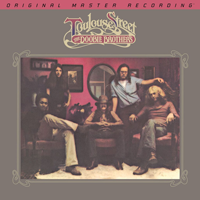Miles Davis Sorcerer (Numbered 45RPM Vinyl 2LP)
Full Details
Sorcerer Is the Third of Five Classic Albums from Miles Davis' Second Great Quintet: Mood, Inflection, and Nuance Cast an Enchanting Musical Spell
Mobile Fidelity's 180g 45RPM 2LP Plays with Ample Dynamics, Presence, Warmth, and Tonal Richness
1/4" / 15 IPS analog master to DSD 256 to analog console to lathe
Filled with aural magic and enchanting musical spells, Sorcerer is true to its name. The third of five albums devised by Miles Davis' Second Great Quintet – and the second record in a still-unprecedented string of eight consecutive releases within a four-year period that forever changed the face of jazz – the 1967 release mesmerizes with instrumental colors, subdued musings, and subtle details.
Sourced from the original master tapes and pressed on dead-quiet vinyl, Mobile Fidelity's 180g 45RPM 2LP set invites you to hear a wealth of information and depth of tonality unavailable on prior versions. The myriad shadings, interwoven textures, and relaxed nuances that tie the post-bop set's warm compositions together are rendered with utmost realism.
You'll hear poetic lyricism pouring out of Wayne Shorter's horn, the breadth and definition of the notes spreading across an enormous soundstage. Never before have drummer Tony Williams' rim shots ricocheted with such purpose or his light percussive work mirrored that of a feather touching skin. Similarly, Herbie Hancock's piano runs now occupy their own space, where their relationship to the central rhythms and front line becomes clearer.
Prizing inflection and nuance more so than heady solos or uptempo flights, Sorcerer mesmerizes with cerebral properties and cascades of emotional interplay. Such beauty emerges in the mellow ballad "Pee Wee," an indelible statement of restrained authority and sophisticated expression. The swirling title track unfolds as jazz shadowplay, Hancock, Shorter, and Williams mirroring one another's moves with guile and purpose. The opening "Prince of Darkness" showcases the ensemble's reach and communication, every musician going in seemingly different directions yet ending up on the same page.
A lasting example of Davis' visionary insight, Sorcerer is comprised entirely of pieces written by his band mates. Save for the closing "Nothing Like You" — a brief tribute to Davis' eventual wife, who graces the cover, that was recorded in 1962 and adorned with vocals from Bob Dorough — the album represents a further maturation and refinement of a quintet that stands as one of the finest in history.
"There was an unpleasant dryness and starkness to the sound of these originals accompanied by unpleasant grain. That is why it is easy to write that these three reissues [of Sorcerer, Nefertiti, and Filles de Kilimanjaro] from Mobile Fidelity sound far superior to the originals. They are far more transparent, detailed and texturally more supple as well as being harmonically more fully fleshed out."
—Michael Fremer, Analog Planet
Track Listing
- Prince of Darkness
- Pee Wee
- Masqualero
- The Sorcerer
- Limbo
- Vonetta
- Nothing Like You






































